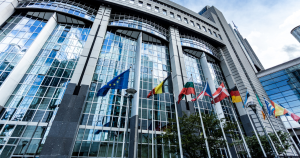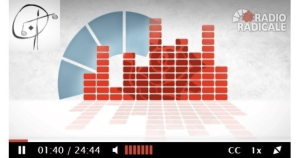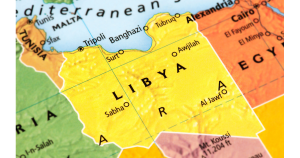Brussels-Geneva, 18 July 2019
In light of the third cycle of the United Nations Universal Periodic Review (UPR) process of Kuwait, No Peace Without Justice (NPWJ) has developed a series of recommendations regarding the cases against Ms Marsha Lazareva and her continued prosecution in Kuwait for alleged crimes of embezzlement.
- Download NPWJ submission (in pdf format)
I. SUMMARY
1. In recent months, NPWJ has become aware of the cases against Ms Marsha Lazareva and her continued prosecution in Kuwait for alleged crimes of embezzlement.
2. In summary, NPWJ understands that Ms Lazareva has been arbitrarily detained in Kuwait and that her due process rights have not been observed throughout proceedings that first led to her conviction and sentence of 10 years hard labour, which was subsequently overturned.
3. In connection with Kuwait’s Universal Periodic Review (“UPR”), NPWJ takes this opportunity to raise concerns regarding Ms Lazareva’s detention and the conduct of her continued prosecution. All relevant actions and events referred to in this submission have taken place during the period since Kuwait’s previous (second) Universal Periodic Report and the date of submission.
4. Our recommendations in respect of Ms Lazareva’s case are set out in Section V of this submission.
5. NPWJ makes this submission mindful of the UN Human Rights Committee’s Concluding observations on the third periodic report of Kuwait, dated 11 August 2016, and in particular its following recommendation:
31. The State party should guarantee the independence, autonomy and impartiality of the judiciary by reforming the system for the appointment, promotion and disciplining of judges and the security of tenure of foreign judges.
II. NPWJ’S UNDERSTANDING OF MS LAZAREVA’S CASE
6. NPWJ is aware of the following facts regarding Ms Lazareva’s case:
– Ms Lazareva is a business executive previously imprisoned in Kuwait for 472 days and is currently on bail pending a further hearing in September 2019.
– Ms Lazareva was first arrested and detained in November 2017 in relation to a number of connected criminal cases falsely alleging misappropriation of public funds.
– Since her arrest in November 2017, until 12 June 2019, Ms Lazareva was detained in Sulaibiya prison in Kuwait, which is infamous for its overcrowding and poor conditions.
– Throughout her detention Ms Lazareva has been denied bail in circumstances where co-defendants have been granted bail and has faced excessive bail conditions, such as the imposition of a US$65 million bail bond in addition to the US$36 million already paid into court.
– The Court of Appeal Judge who ordered this bail payment had earlier recused himself from the case.
– In May 2018, Ms Lazareva was convicted by a Court of First Instance in Kuwait on charges of embezzlement in relation to her work with a Kuwaiti entity, despite not having been permitted to call a single defence witness and not being provided with all material documents.
– In May 2019, Ms Lazareva’s First Instance conviction was overturned and a fresh trial ordered.
– However, rather than releasing Ms Lazareva, Ms Lazareva remained in detention, her release conditional on payment of the aforementioned extortionate bail.
– It was only on 12 June 2019 that Ms Lazareva was released from jail on bail following a reduction in the bail amount to US$3.3 million and payment by an anonymous Kuwaiti donor.
– Ms Lazareva is subject to travel bans. She remains in Kuwait and is being followed at all times by security services despite there being no court order providing for such surveillance.
– Ms Lazareva faces a further hearing in her case in September 2019. This hearing was originally scheduled for 30 June 2019 but was postponed without good reason.
III. RELEVANT LEGAL STANDARDS
7. Kuwait is a party to the International Covenant on Civil and Political Rights (‘ICCPR’).
8. Based on the information available to NPWJ , there are at least two ICCPR standards that are relevant to this submission: Article 9 and Article 14 ICCPR.
A. Article 9 ICCPR “Liberty and Security of person”
9. Article 9 ICCPR, provides:
1. Everyone has the right to liberty and security of person. No one shall be subjected to arbitrary arrest or detention. No one shall be deprived of his liberty except on such grounds and in accordance with such procedure as are established by law.
2. Anyone who is arrested shall be informed, at the time of arrest, of the reasons for his arrest and shall be promptly informed of any charges against him.
3. Anyone arrested or detained on a criminal charge shall be brought promptly before a judge or other officer authorized by law to exercise judicial power and shall be entitled to trial within a reasonable time or to release. It shall not be the general rule that persons awaiting trial shall be detained in custody, but release may be subject to guarantees to appear for trial, at any other stage of the judicial proceedings, and, should occasion arise, for execution of the judgement.
4. Anyone who is deprived of his liberty by arrest or detention shall be entitled to take proceedings before a court, in order that that court may decide without delay on the lawfulness of his detention and order his release if the detention is not lawful.
5. Anyone who has been the victim of unlawful arrest or detention shall have an enforceable right to compensation.
10. At its core, Article 9 ICCPR provides for a right to freedom from arbitrary detention.
B. Article 14 ICCPR “Equality before courts and tribunals”
11. Article 14 ICCPR provides:
1. All persons shall be equal before the courts and tribunals. In the determination of any criminal charge against him, or of his rights and obligations in a suit at law, everyone shall be entitled to a fair and public hearing by a competent, independent and impartial tribunal established by law. The press and the public may be excluded from all or part of a trial for reasons of morals, public order (ordre public) or national security in a democratic society, or when the interest of the private lives of the parties so requires, or to the extent strictly necessary in the opinion of the court in special circumstances where publicity would prejudice the interests of justice; but any judgement rendered in a criminal case or in a suit at law shall be made public except where the interest of juvenile persons otherwise requires or the proceedings concern matrimonial disputes or the guardianship of children.
2. Everyone charged with a criminal offence shall have the right to be presumed innocent until proved guilty according to law.
3. In the determination of any criminal charge against him, everyone shall be entitled to the following minimum guarantees, in full equality: (a) To be informed promptly and in detail in a language which he understands of the nature and cause of the charge against him;
(b) To have adequate time and facilities for the preparation of his defence and to communicate with counsel of his own choosing;
(c) To be tried without undue delay;
(d) To be tried in his presence, and to defend himself in person or through legal assistance of his own choosing; to be informed, if he does not have legal assistance, of this right; and to have legal assistance assigned to him, in any case where the interests of justice so require, and without payment by him in any such case if he does not have sufficient means to pay for it;
(e) To examine, or have examined, the witnesses against him and to obtain the attendance and examination of witnesses on his behalf under the same conditions as witnesses against him;
(f) To have the free assistance of an interpreter if he cannot understand or speak the language used in court;
(g) Not to be compelled to testify against himself or to confess guilt.
4. In the case of juvenile persons, the procedure shall be such as will take account of their age and the desirability of promoting their rehabilitation.
5. Everyone convicted of a crime shall have the right to his conviction and sentence being reviewed by a higher tribunal according to law.
6. When a person has by a final decision been convicted of a criminal offence and when subsequently his conviction has been reversed or he has been pardoned on the ground that a new or newly discovered fact shows conclusively that there has been a miscarriage of justice, the person who has suffered punishment as a result of such conviction shall be compensated according to law, unless it is proved that the non-disclosure of the unknown fact in time is wholly or partly attributable to him.
7. No one shall be liable to be tried or punished again for an offence for which he has already been finally convicted or acquitted in accordance with the law and penal procedure of each country.
12. At its core, Article 14 ICCPR provides for fair trial guarantees.
C. State Responsibility
13. In addition, international law rules on State responsibility are relevant to this submission. In particular, Articles 1, 31 and 34 of the International Law Commission’s Articles on Responsibility of States for Internationally Wrongful Acts 2001 provide:
1. Every internationally wrongful act of a State entails the international responsibility of that state.
31(1). The responsible State is under an obligation to make full reparation for the injury caused by the internationally wrongful act.
31(2). Injury includes any damage, whether material or moral, caused by the internationally wrongful act of a State.
34. Full reparation for the injury caused by the internationally wrongful act shall take the form of restitution, compensation and satisfaction, either singly or in combination, in accordance with the provisions of this chapter.
IV. CONCERNS
14. Based on the information NPWJ has, NPWJ raises two principal concerns regarding Ms Lazareva’s case, namely that:
– She has been arbitrarily detained in violation of Article 9 ICCPR; and
– There is have been systemic failures to ensure procedural protections for Ms Lazareva in violation of Article 14 ICCPR.
15. NPWJ wishes to draw to the attention of the UN Human Rights Council the following points as regards each concern.
A. Arbitrary Detention
16. Ms Lazareva has been arbitrarily detained, contrary to her Article 9 ICCPR rights. Among other matters:
– Ms Lazareva’s pre-trial detention was unreasonable in circumstances where her co-defendants were not detained;
– The amount of bail ordered in Ms Lazareva’s case was excessive and punitive and thus offered no realistic possibility of being paid;
– We understand that the charges against Ms Lazareva are entirely without merit, notably because the evidence that forms the basis of the case against Ms Lazareva has been found by a Kuwait civil court to have been forged.
17. Even though Ms Lazareva has now been released on bail, we are aware of no rational justification for Ms Lazareva’s detention having been provided by Kuwait. Kuwait has therefore failed to comply with its international obligations under the ICCPR.
B. The Absence of Procedural Protections
18. Two primary concerns arise as regards Ms Lazareva’s treatment:
– First, Ms Lazareva has not been afforded the opportunity properly to mount a defence, in violation of Article 14 ICCPR. For example:
– Ms Lazareva has not been provided with disclosure of prosecution materials in advance of her hearings;
– Ms Lazareva has been denied materials in a language that she can understand;
– Ms Lazareva has not been provided adequate facilities to have legally privileged consultations with her lawyers; and
– The trial court has failed to permit Ms Lazareva’s counsel opportunities to question witnesses and properly test the evidence against them or call expert witnesses.
– Second, Ms Lazareva has been tried by a panel plainly lacking independence and impartiality. For example, we understand that the Court of Appeal Judge who imposed the excessive US$65 million bail demand had previously recused himself from Ms Lazareva’s case but later proceeded to try her case without any justification. In addition, the scale of procedural violations outlined above gives rise to serious questions as to the panel’s suitability, as it is inconceivable that any impartial, independent and competent panel would have allowed such violations to occur.
19. As set out in paragraph 13 above, under international law, whenever a State commits and internationally wrongful act, that State’s responsibility is engaged and full reparation is required.
20. We are pleased to have this opportunity to engage constructively with Kuwait during its third UPR. In the spirit of improving the human rights situation in Kuwait generally, and in respect of Ms Lazareva’s case specifically, we recommend that:
(i) Kuwait recognise that Ms Lazareva was arbitrarily detained contrary to Kuwait’s international legal obligations.
(ii) Kuwait recognise that Ms Lazareva’s rights to due process and a fair trial have been denied throughout the prosecution process and that effective steps to redress these serious shortcomings must be taken urgently.
(iii) Kuwait issue an apology to Ms Lazareva for the treatment that she has received and provide adequate compensation for the harm she has suffered, in accordance with established principles of international law.
(iv) Kuwait make a public commitment to uphold its ICCPR rights.
(v) Kuwait take steps to uphold its ICCPR obligations and ensure that those rights are protected for all individuals subject to its jurisdiction.
(vi) Kuwait become a party to Optional Protocol I to the ICCPR to recognise the competence of the UN Human Rights Committee to receive and consider communications from individuals subject to its jurisdiction who claim to be victims of a violation by Kuwait of any of the rights set forth in the ICCPR.
(vii) Kuwait undertake a full review of its judicial system in accordance with international best practices – including the independence and competence of the judiciary – to ensure that Ms Lazareva and others receive fair trials in the future and that due process rights are protected.
(viii) Kuwait invest in training judges and lawyers to ensure that procedural rights are understood and upheld in the future, particularly but not exclusively in the criminal justice context.
21. We thank the UN Human Rights Council for considering our concerns and recommendations and for its important work on the protection and promotion of fundamental rights. We call upon Member States of the UN Human Rights Council to raise Ms Lazareva’s case during Kuwait’s UPR and in their bilateral relations with Kuwait as they deem appropriate.




